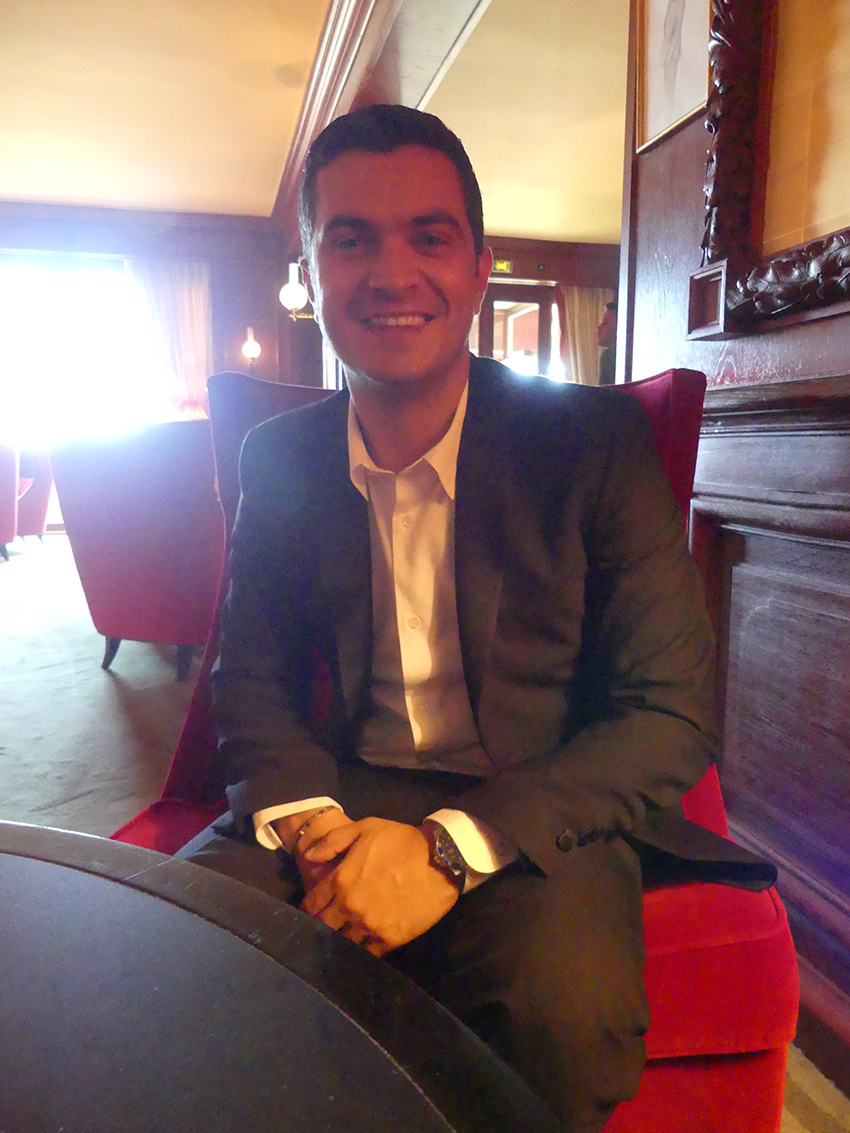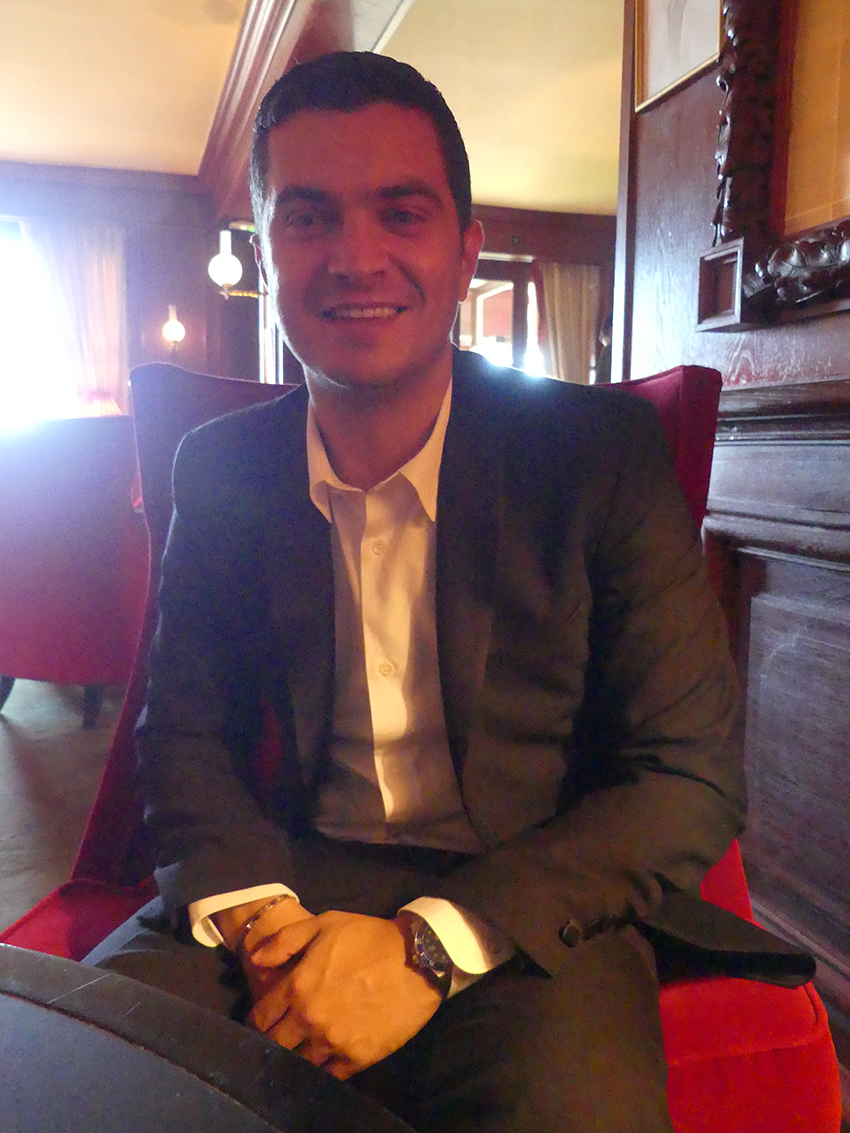Festivals - FCAD 2020 – Brothers by Blood - Our Jeremie Guez’s interview
By Mulder, Deauville, Hôtel Barrière Le Royal, 08 september 2020
Sound of Philadelphia is a detective film written and directed by Jérémie Guez. It was announced in May 2018 that Matthias Schoenaerts, Garrett Hedlund and Scoot McNairy have been selected to star in the film. In February 2019, Joel Kinnaman, Ryan Phillippe Paul Schneider and Maika Monroe were announced for casting in the lead roles. Shooting began in March 2019 in New York City. Its world premiere was scheduled to take place at the Tribeca Film Festival on April 19, 2020, before the festival was postponed due to the COVID-19 pandemic. The film will be screened as part of the Deauville American Film Festival from September 4 to 13. Jérémie Guez is a novelist (his novel Balancé dans les cordes received the SNCF detective novel prize in 2013) and a well-known screenwriter (La nuit a dévoré le monde, Rebelles, ...). His first film Bluebird with Roland Møller, Lola Le Lann and Verle Baeetens, is available on VOD since June 16 on all platforms.
On the occasion of its World Premiere at the American Film Festival of Deauville, the director and screenwriter Jérémie Guez came to present this film and with our colleague from the online media Fou de théâtre we had the chance to interview him.
Q : I liked your film and I wanted to tell you that and at the same time I found that in terms of editing with the flashbacks, the rather short scenes a little bit chiseled like that, I felt lost and I thought that you had done it on purpose already and I would like you to tell me a little bit about it.
Jérémie Guez : The double narration was actually something that is quite fluid when you write the screenplay, this explains that and in the editing we realize that we don't want to see two films that are moving in parallel at the same level there are two films in one and at the same time there is no film so it becomes very complicated and the question quickly became to say to ourselves that- what we can say about the past that can explain what is happening in the present, but in reverse we are not the scene that explains what is happening before to understand the next scene in the present time, so we chose to invert the placements a bit and start the story like that, a bit of but en blanc in a very rough way and then introduce it, to disseminate the flashbacks by hiding the first names of the characters all that to see a little what is going on... what we manage to catch up especially there was this test to say it by showing people is what even if they don't understand all the family relationships what happened even if questioned is what there is a general emotion that emerges from the film that allows them to be moved to to appreciate it or to be stressed and that we don't care the understanding that at one point the rhythm advances so quickly that the brain disconnects that if we stay in the film we stop telling ourselves who does what and above all I said to myself there is so much today, there's a kind of silly code that is over-chewing the narration and this angst is what we're going to understand this and all that. I'm sure that the films you prefer there's a lot of stuff that is thrown around and then left to your imagination and I feel like that's what cinema was like before and it's something that's getting lost and I miss understanding everything already, planning everything in advance and I wanted to come back with something a little bit more abrupt.
Q : I also said to myself that you give and you let go but I actually felt helpless and I liked that emotion because I thought the main character actually feels helpless as well. It's that I feel at a distance there is also this distance from this family and I liked to feel a bit like him . How did you proceed to adapt Brotherly Love by Pete Dexter and why this book in particular ?
Jérémie Guez : So why the book, in fact, I read it, I knew Pete Dexter's work but I had missed that one. I read it for the first time, I started rereading it regularly and there was something that fascinated me about I don't know the main character. I thought there was a very beautiful motif after all the book takes place roughly from childhood to adulthood but going through adolescence it's each time slices of life as in the film and there is a little more temporality and the adaptation was to say is what we can focus on the end of these two characters and that she is the quintessence of the relationships they have and I thought it would be nice to explain the relationships they have by explaining the childhood of one of the two without ever showing the second one and to show that basically even Michael also to add empathy on him as unpleasant and diabolical as he is- it, He also inherited a relationship that Peter had with his father and uncle and once I saw it take shape ; I thought to myself, I think I can start to adapt it.
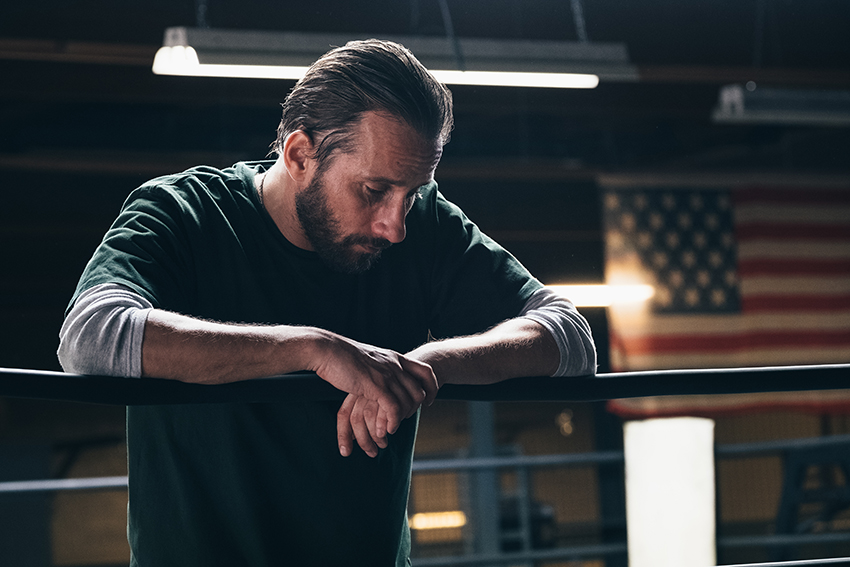
Q: What is your relationship with American cinema ?
Jérémie Guez : It's a rather good relationship after I don't have a privileged relationship as compared to Italian, French or Japanese cinema. There are directors that I admire a lot. There are things I like less.
Q : You're paying a nice tribute to American film noir.
Jérémie Guez: I'm happy because there are a lot of them. The black-and-white period between 1940 and 1955, there are a lot of directors but who are often European directors but whom I admire a lot. There are a lot of films, it's probably my favourite period. In addition to the fact that it is a mafia film, we often talk about films from the 60s and 70s, there are perhaps fewer that influenced me in terms of black films, less in terms of being young than pre-war or immediate post-war films.
Q : Can you tell us about your collaboration on this film with Matthias Schoenaerts, Joel Kinnaman, Maika Monroe and Ryan Phillippe ?
Jérémie Guez: I'll start in order of seniority. Mathias I immediately thought of him because he had this thing. I started developing the project a long time ago, so it was the beginning of his international career : he was releasing the film De rouille et d'os (2012), he said yes at the time of the film Maryland (2015) if I'm not talking nonsense. He had this very beautiful and at the same time fragile alpha male thing. He had a bit of a childish side to him, a bit of a lost side to him and it always turned into violence and I thought ah what would this character be like if I used the imposing physical side of the character but he was completely flattened psychologically by someone who looks less physically strong than him and I don't know and I felt like that could talk to him but I feel like the character, When I think about the characters I imagined a guy who would look like Mathias for an average person, he looks worrying and when you see him in relation to people with whom he has a family relationship, he crashes and becomes a child again. So we worked upstream in this direction. Joël, great professional relationship. He came late to the film. He was shooting for an Apple TV+ production (For All Mankind) and he was doing the accent lessons. He was shooting during the day for Apple TV+ and at night he was doing accent classes to get the Philadelphia accent. He would debrief me on the script. He had a very impressive level of involvement. Maika Monroe, ditto, she is a professional. It's the same level of involvement and professionalism. Ryan Phillippe was really a kid's dream because he's been in a lot of movies that I love. I have a bedside movie from 2000 called The Way of the Gun by Christopher McQuarrie and in it he has the lead role with Benicio Del toro. I've always found him to be a very good actor. He had that same kind of American sex symbolism in the 90s and an angry man at the same time. He has worked with a lot of great directors. I thought about him and it turns out he said yes. Frankly, he's a very simple man. He puts his clothes on first thing in the morning and goes around mumbling and rehearsing his role to the coffee machine. To give you an anecdote, the first day he arrived, he put on his polo shirt so he was playing the scenes of the time. He went to the control room table and the second assistant, she said to me then, He's not there Ryan Phillippe while he's next to her. I said, well, if he's next to you.
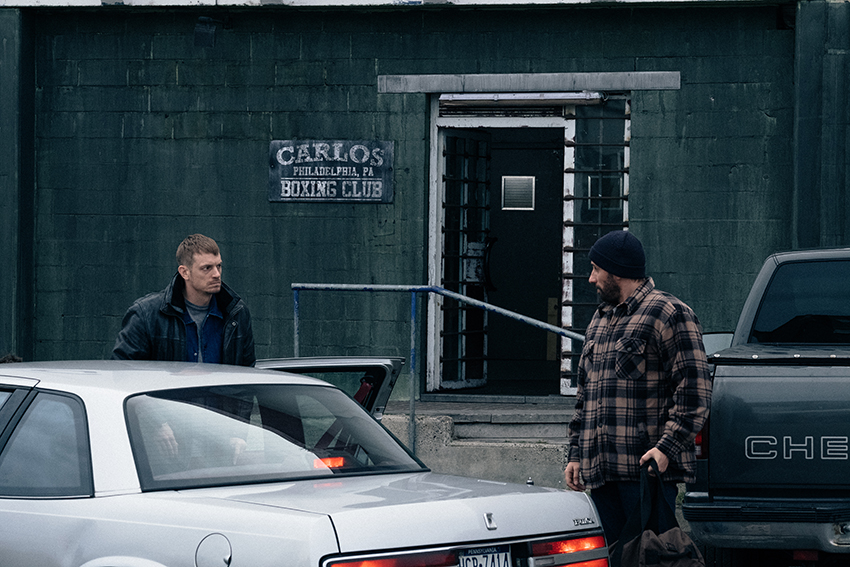
Q: It makes me want to tell you about Matthias. I have a huge crush on everything he does. In this film you talked about it a little bit then but I wondered if I'm a little crazy or psychologically damaged in the end. In fact I find that throughout the film it gradually becomes more and more childish and in the end I almost had the sensation of seeing a separate body and mind. There are really some scenes where he has a small head and a huge body and I don't know if you did it on purpose, if it was intuitive or it's an emotion I had on my own.
Jérémie Guez: no, I think it's something we've been working on visually, how to compress your body with the focal length lenses, how to crush it, the blurring effects. He's a lot dominated in the film, even though he looks like a dominant, so I think that at one point the ratios are reversed, and then sometimes on screen from one shot to the next, the child he was is much taller on screen than the adult he became in the next scene, so there's a slightly disturbing ratio.
Q: there is squarely in one of the last scenes between the child and him or they are recognized at that moment while the other times
Jérémie Guez: That's nice. The great anguish of filming was the fact that at one point we are obliged to add the first names and we won't understand that the child is him and there is a moment when the faces get confused when they don't have the same face at all. I'm glad it works.
Q : How did you manage to do the shooting in these scenes that are so evolutive I find that you shot in order but that's impossible. He's a genius, Matthias maybe, or you did an incredible job of scripting behind it.
Jérémie Guez : I think Matthias is particularly brilliant.
Q: You're talking about the evolution of his character.
Jérémie Guez: no, we talk about it upstream afterwards. We talk a lot about it upstream afterwards, and then he locks himself in with what we said to each other and then he comes close. Afterwards, there are adjustments but there is never an existential crisis. He is always acutely unaware of what he is doing. An example, to say that it doesn't work. We had talked a lot about the character. He left with his stuff, he came back and he told me I know it's not written down but I think I have to have little gestures of tenderness towards Joel or else people will think I hate him all the time and we won't understand our relationship. He said let me try it from time to time when I feel like it. One day, Joel was only aware several scenes ago the scene of the horse where he says come, let's go, he takes it by the hand the times he touches the face especially at the end in the forest. We didn't even write all this stuff because even he wasn't peremptory, but he would tell me, let me play if I have to, I'll do it naturally without it being too much, and in the end, we kept all this stuff in the editing.
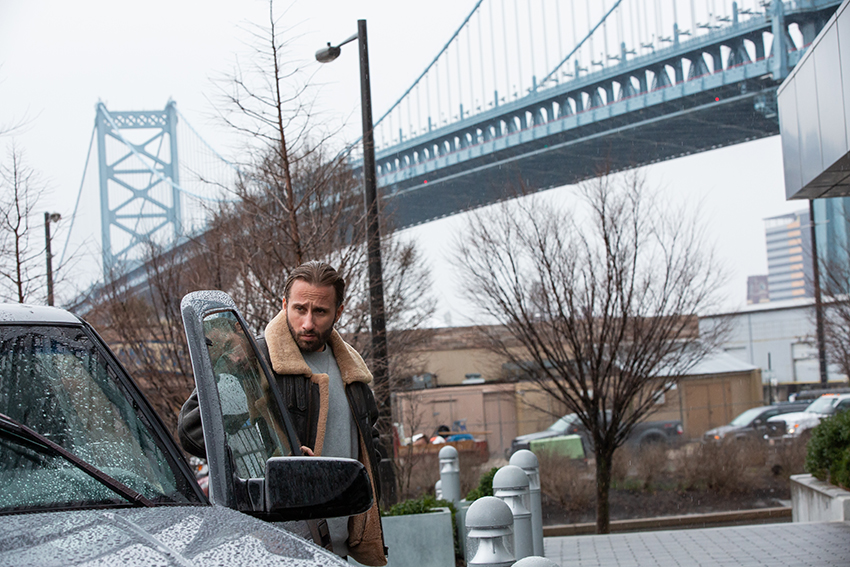
Q: What was the main difficulty during the shooting of this film? Is there a difficult scene in particular?
Jérémie Guez : There are always a little complicated conditions on every film but I can think of one difficult scene. There's a very difficult scene, it's the scene after Jimmy's restaurant burned down which is played by Paul Schneider and explains to Matthias what happened. I owe a lot to Paul who plays Jimmy. It's an emotional scene where the guy looks a bit shabby and scared and then he confides in a guy who has a problem with cowardice himself. It was an extremely complex scene. How can he tell that he burned down his restaurant. It's a dramatic thing and not a thing and it was really finding that balance and then one moment we were talking about it we were talking about it with Paul and I think I don't have the right keys to help him. He said, I'm just going to get drunk at noon and then I'm going to try to get into the guy's head and then we'll see if it fails, we'll do another one. We used to shoot for a long time in the same place. I told him you know what, we're going to do this and I think he came up with a great proposal to take this off. He said me I don't want to put in bed all dressed even if I am drunk. I still want to get naked and see how it feels. I was thinking this is going to be ridiculous on the screen. We did a rehearsal. He started it, I got it right, they understood it and all that, and Mathias told me we're only doing one rehearsal shoot right away because in terms of energy he's not going to make it. He's not going to hold 50 like that so I think it was the most difficult scene or sometimes the tone of the scenes that I feared a lot that happened the best in terms of accuracy, the horse scene but in Dexter there are often these scenes a little bit above that could be comedy, if it was more serious it could really be rama and we're a little bit in between. We don't know on what foot to dance on, we're just a little uncomfortable and it was complicated to render.
Q: You're a very recognized writer. What was your desire to go to the movies
Jérémie Guez : In real life, I've always wanted to make films. I've always found that. Strangely enough, I've written and published books before, but for me being a writer was really something that was quite impossible in the sense of being a great writer, and there was something very violent about being alone and facing yourself. In the cinema there were the actors, there was the fact of seeing something magical and entrusting people with a more gifted self. If I write a book, I can't have a Matthias. There's this thing about talking to people, seeing the scenes, having fun every day, not just thinking about the result. Working with great technicians, great actors, even in moments of stress, even if no matter what the outcome there is a moment when you're blown away. Saying this thing on paper all of a sudden it comes true because there's time for one scene in a film. They are the characters I wrote. It's a bit of a magical thing that I fantasized a lot about and I wasn't too disappointed with the reality of that fantasy. I think it's a very different exercise, but I've always had a greater appetite for cinema, which is not necessarily an art form that I put above it. I think I have more respect for literature. I find it harder to finish from a work point of view but I still have. It's more a real teamwork for the sake of it and that's what's very pleasant.
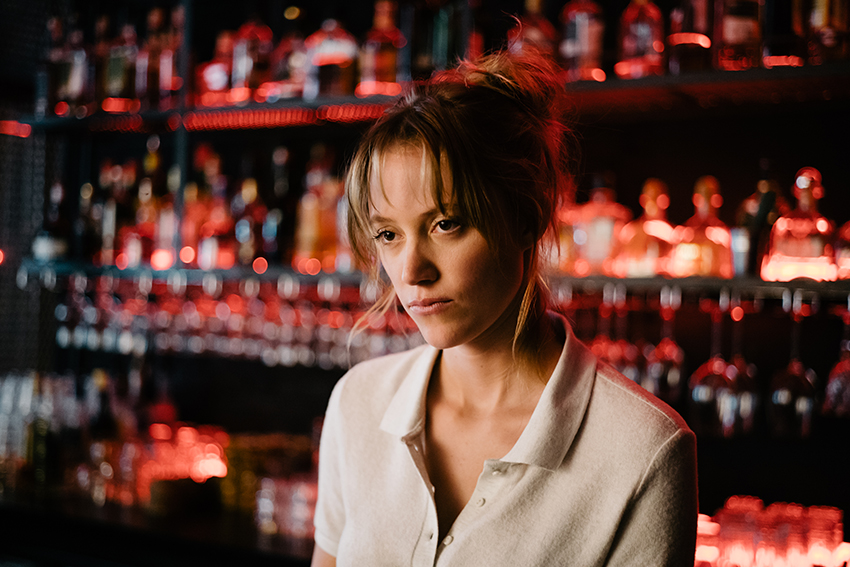
Q: When you think of Philadelphia, you think of Rocky. Did it inspire you a bit for the boxing scenes in the movie or maybe another movie like Raging bull ?
Jérémie Guez : It's funny, it's an involuntary wink. It's very complicated to find a movie with good boxing scenes even if there are great boxing movies. I don't know what my favorite boxing movie is, maybe We Won Tonight (The Set-Up) (1949) by Robert Wise. There is also a film with Daniel Day-Lewis The Boxer (1997) by Jim Sheridan, about an IRA guy who just got out of six years in prison and is a former boxer. If there are scenes that inspired me, it's more the scenes from that movie and not the scenes from that movie. I wasn't thinking about Rocky. I realized that there was a dimension of Rocky that was foreign to me: there is an obvious parallel between the people of Philadelphia and Rocky in their mentality and pride : humble, blue-collar, hard-working, proud of who they are, a little underdog. It's really a city with a mentality that's a little different and completely different from New York and Boston, which are the other two queens of the East Coast. In fact, in everything that has to do with people who grew up in Philadelphia, the identity of the city, I now feel like I'm finding a Rocky side to it. It has given me a better understanding of Rocky and an even stronger sentimental dimension to having seen the people there, that they are proud of the film, the visits to the steps. I told myself that there are plenty of films that would have been shot in a place where there wouldn't have been such empathy, identification of the people of the city for this fictional hero.
Synopsis :
Philadelphia. Thirty years ago, Michael's family took in Peter after his father's death, under opaque circumstances. Today, Peter and Michael are two little thugs with opposite temperaments. One is as violent and exuberant as the other is taciturn. When Michael is labeled "embarrassing" by the Italian mafia, the family's troubled past resurfaces...
Brothers by Bood
Written and directed by Jeremie Guez
Produced by Aimee Buidine, David Hinojosa, Julien Madon, Christine Vachon
Based on Brotherly Love by Pete Dexter
With Matthias Schoenaerts, Joel Kinnaman, Maika Monroe, Paul Schneider, Ryan Phillippe
Music by Séverin Favriau
Cinematography : Menno Mans
Editing: Damien Keyeux, Brett M. Reed
Production: Cheyenne Films, Killer Films, Brookstreet Pictures
Distributor: Les Bookmakers / The Jokers (France)
Release date: December 30, 2020 (France)
Running time : 90 minutes
Photo: Boris Colletier / Mulderville


